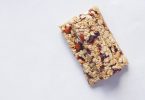You’ve been hitting the gym regularly, trying to shed those extra pounds and tone your body. But despite your best efforts, you’ve noticed that your belly seems to be getting bigger instead of smaller. What gives? Could it be possible that you’re gaining belly fat after your workout?
In this article, we’ll explore the phenomenon of gaining belly fat after a workout, including the possible causes and solutions. We’ll dive into the science behind fat loss and gain, and provide tips on how to optimize your workouts and diet to achieve your fitness goals.
Whether you’re a seasoned gym-goer or just starting out, you’ll gain a deeper understanding of the factors that can impact your body composition and how to make the most of your fitness routine. So, if you’re ready to tackle the mystery of gaining belly fat after a workout, let’s dive in and get started!
Understanding Weight Gain and Belly Fat
Before delving into the details, it’s crucial to comprehend the fundamentals of weight gain and belly fat. Weight gain transpires when you ingest more calories than your body expends, leading to an excess of stored energy.
Visceral fat, also referred to as belly fat, is the fat that gathers around your abdominal organs. Although some amount of fat is necessary for bodily operations, an excessive amount of belly fat can be detrimental to your well-being.
Role of Genetics in Weight Gain
Genetics performs a substantial function in how and where your body accumulates fat. Certain individuals have a genetic inclination to harbor additional weight in their abdominal region, making it more arduous to shed belly fat. While you can’t change your genetics, you can still work towards a healthier body through lifestyle modifications.
Different Types of Fat and Their Impact
Not all fat is equivalent. Subcutaneous fat is situated just below the skin and is relatively benign, whereas visceral fat, the kind that leads to a bulging belly, is linked to several health hazards, including heart disease and diabetes.. Understanding the distinction between these fat types is crucial in your quest to shed belly fat.
Role of Exercise in Weight Gain
Physical activity is a potent instrument for attaining and sustaining a healthy weight. It can aid in burning calories, developing muscle, and enhancing your comprehensive fitness level. However, there are instances when starting a workout routine might seem counterintuitive in terms of belly fat reduction.
How Exercise Can Lead to Weight Gain
It may sound contradictory, but gaining weight after starting an exercise regimen is not uncommon. When you begin working out, your body can experience temporary weight gain due to muscle development.
Muscle weighs more than fat, so as you build lean muscle mass, the numbers on the scale might not reflect your progress accurately.
Understanding Muscle Gain and Weight Increase
Muscle gain is a positive outcome of regular exercise. As you engage in strength training and resistance exercises, your body responds by building lean muscle tissue.
This increase in muscle mass can lead to a higher number on the scale, even if you are simultaneously losing fat. Keep in mind that it’s crucial to emphasize alterations in body composition rather than exclusively relying on the scale to gauge your progress.
Types of Exercises and Their Impact on Weight
The types of exercises you engage in can also influence your body’s response to workouts. Cardiovascular exercises, such as running and cycling, primarily burn calories during the activity, while strength training and high-intensity interval training (HIIT) can boost your metabolism and promote muscle growth, leading to long-term weight loss and fat reduction.
Diet and Nutrition’s Impact on Weight
Exercise alone is not enough to achieve your weight loss goals. Your diet and nutritional choices play a crucial role in determining whether you gain or lose belly fat.
Understanding Caloric Intake and Weight Gain
Weight gain can occur if your calorie intake exceeds the number of calories you burn through exercise and daily activities. It’s essential to maintain a balance between the calories you consume and those you expend. Tracking your daily calorie intake and being mindful of portion sizes can help you stay on track.
Role of Macronutrients in Weight Gain
The makeup of your diet is significant. Concentrate on consuming a well-balanced diet that encompasses an adequate quantity of protein, carbohydrates, and healthy fats. Protein, in particular, can assist in muscle recuperation and development, which is crucial for sustained weight management.
Impact of Processed Foods and Sugar on Weight
Eating processed foods and consuming an excess of sugar can result in weight gain and belly fat. These foods are frequently high in calories and offer minimal nutritional benefits. Choose whole, unprocessed foods such as fruits, vegetables, lean proteins, and whole grains to promote your fitness objectives.
Importance of Hydration in Weight Management
Don’t overlook the role of hydration in your weight management journey. Staying well-hydrated not only supports your overall health but can also help control appetite and prevent overeating. Make sure to drink plenty of water throughout the day.
Lifestyle Factors Affecting Weight Gain
Your lifestyle choices can have a significant impact on your body composition, including the accumulation of belly fat.
Impact of Stress and Cortisol on Weight
Stress can result in weight gain, primarily around the abdominal region. When you’re stressed, your body discharges cortisol, a hormone that can foster fat accumulation, particularly in the belly area. Engaging in stress management techniques such as meditation, deep breathing, and exercise can aid in reducing this impact.
Role of Sleep in Weight Management
Insufficient sleep can interfere with your body’s hormones that regulate hunger and appetite, resulting in amplified food cravings and weight gain. Strive for seven to nine hours of restful sleep each night to bolster your weight loss endeavors.
Effect of Sedentary Lifestyle on Weight
A stationary way of life, distinguished by extended periods of sitting or inactivity, can contribute to weight gain and the buildup of abdominal fat. Integrate consistent physical activity into your daily routine, even beyond your structured workouts.
Health Conditions and Medications Impacting Weight Gain
Sometimes, factors beyond your control can influence your body weight and fat distribution.
Common Health Conditions Leading to Weight Gain
Specific medical conditions, such as hypothyroidism and polycystic ovary syndrome (PCOS), can result in weight gain, encompassing belly fat. If you suspect an underlying health problem, seek advice from a healthcare expert for accurate diagnosis and treatment.
Impact of Medications on Weight
Some medications, such as certain antidepressants and corticosteroids, can contribute to weight gain. If you believe your medication is affecting your weight, discuss potential alternatives with your healthcare provider. It’s essential to have open communication with your healthcare team to ensure your medications are supporting your overall health and fitness goals.
Understanding Weight Loss
Now that we’ve explored the factors that can contribute to belly fat gain, let’s shift our focus to effective strategies for weight loss.
Effective Strategies for Weight Loss
- Create a Caloric Deficit: To shed weight, you need to consume fewer calories than you burn. This can be accomplished by combining dietary modifications with augmented physical activity.
- Balanced Diet: Prioritize whole, nutrient-dense foods while controlling portion sizes. Incorporate plenty of vegetables, lean proteins, and whole grains into your meals.
- Regular Exercise: Persist with your workout regimen, emphasizing a blend of cardiovascular and strength-training workouts. Keep in mind that muscle development may initially counterbalance fat loss on the scale.
- Consistency is Key: Weight loss takes time. Stay committed to your fitness and nutrition plan, and don’t be discouraged by temporary setbacks.
- Monitor Progress: Keep track of your progress through measurements, photos, and how your clothes fit. These indicators can be more accurate than the scale alone.
- Consult a Professional: If you’re struggling to lose belly fat or suspect underlying health issues, consult a registered dietitian or healthcare provider for personalized guidance.
Understanding the Concept of Caloric Deficit
The cornerstone of weight loss is the concept of a caloric deficit. This means that you’re burning more calories than you’re consuming. To achieve a caloric deficit, you can either reduce your calorie intake or increase your calorie expenditure through exercise. It’s often most effective to combine both approaches for sustainable and healthy weight loss.







